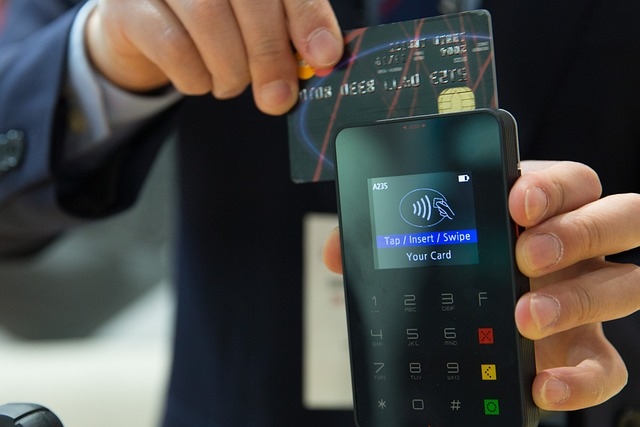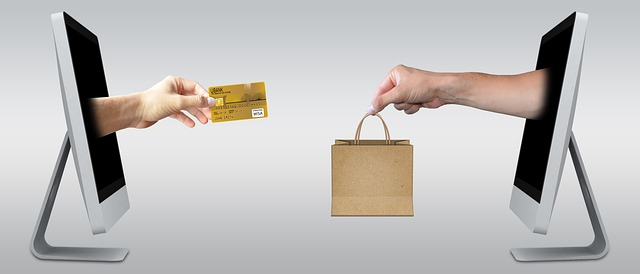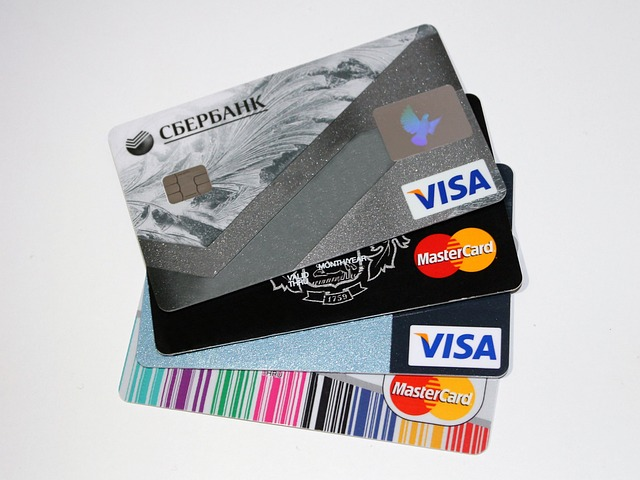What is a Payment Processor?
A payment processor facilitates online, debit, and credit card payments by securely transmitting payment data between customers and merchants. These financial institutions act as the backend processors for credit card processing companies, ensuring seamless transactions.
Payment processors are essential for merchants as they enable the acceptance of various payment methods, including credit cards, digital payments, and mobile payments. They work with merchant acquirers to set up a merchant account, allowing businesses to receive payments from customers worldwide.
One of the key functions of payment processors is managing transaction fees. They calculate and charge fees for each transaction processed, impacting the overall cost for merchants. Payment processors efficiently process payments, ensuring that funds are transferred securely and promptly.
Moreover, payment processors provide essential merchant services, offering tools and solutions to help businesses streamline their payment processes. These services include fraud protection, reporting and analytics, and integrating e-commerce platforms.
How do Payment Processing Companies work?
Payment processing companies play a crucial role in facilitating transactions between merchants and customers. Here is a detailed explanation of how these companies work.
Authorization: When a customer makes a purchase using a credit or debit card, the payment processing company first checks if the card is valid and if the customer has enough funds to cover the transaction. This process involves verifying the card details, checking for fraud alerts, and confirming that the transaction meets all security requirements.
Encryption: To ensure the security of the transaction, payment processing companies use encryption technology to protect sensitive information such as credit card numbers and personal details. This helps prevent unauthorized access to the data and reduces the risk of fraud.
Communication: Once the transaction is authorized and encrypted, the payment processing company communicates with the customer’s bank or credit card issuer to request the funds. This communication happens through secure networks to maintain the confidentiality of the transaction details.
Settlement: After the customer’s bank approves the funds, the payment processing company settles the transaction by transferring the funds from the customer’s account to the merchant’s account. Depending on the banking systems involved, this process typically takes a few days to complete.
Fees: Payment processing companies charge fees for their services, including transaction fees, monthly fees, and interchange fees. These fees cover the cost of processing payments, maintaining secure networks, and providing customer support.
In conclusion, payment processing companies are vital in enabling seamless and secure transactions between merchants and customers. Their processes involve authorization, encryption, communication with banks, settlement of funds, and charging fees for their services. By understanding how payment processing companies work, businesses can ensure smooth financial transactions and protect sensitive customer data.
Does my Small Business need a Payment Processor?
Yes, your small business needs a payment processor if you want to securely accept customer payments using various methods such as credit cards, debit cards, and online payments. By using a payment processor, you can streamline the payment process, reduce the risk of fraud, and provide convenience for your customers.
Additionally, payment processors can help you track transactions, manage cash flow, and improve overall financial management for your small business. Investing in a payment processor is crucial for the growth and success of your small business in today’s digital economy.
What are the Biggest Payment Processors?
Here are some of the largest payment processors to know.
PayPal
With an impressive transaction volume, PayPal is one of the biggest payment processors globally. In 2020 alone, PayPal processed a total of 15.4 billion in transactions, showcasing its widespread usage and popularity among consumers and businesses alike.
One of the main reasons why PayPal is considered a giant in the payment processing industry is its user-friendly interface, secure payment options, and widespread acceptance across various online platforms. Additionally, PayPal’s ability to facilitate transactions in multiple currencies and its buyer protection policies have contributed to its success as a trusted payment processor for millions of users worldwide.
Stripe
Stripe is a payment processing platform that allows businesses to accept payments online. It is one of the largest payment processors because of its user-friendly interface, seamless integration with e-commerce platforms, and advanced features such as fraud prevention and subscription management.
Stripe’s focus on innovation and technology has also contributed to its popularity among businesses of all sizes. Additionally, its transparent pricing structure and excellent customer support have helped it gain the trust of merchants worldwide.
Square
Square is one of the biggest payment processors in the industry, known for its user-friendly interface and range of features. With Square, businesses can accept payments in-person, online, and through mobile devices, making it convenient for customers and merchants.
One key benefit of using Square is its fast and secure transactions, which provide peace of mind for both parties involved. In addition, Square offers tools for inventory management, sales reporting, and customer relationship management, helping businesses streamline their operations. With a high transaction volume, Square has established itself as a reliable and efficient payment processor for businesses of all sizes.
Worldpay
Worldpay is a leading payment processor that enables businesses to accept various forms of payment from customers. They provide a secure platform that allows merchants to process credit card transactions, debit card payments, and online payments seamlessly.
When a customer purchases, Worldpay securely processes the payment information and transfers the funds from the customer’s account to the merchant’s account. This process ensures that transactions are completed quickly and securely, giving businesses peace of mind and customers a smooth payment experience. Worldpay’s innovative technology and reliable service make it a trusted choice for companies looking to streamline their payment processing operations.
FISERV
Fiserv is a leading payment processor that offers a wide range of financial services to businesses and consumers. Fiserv’s strong focus on innovation and technology provides secure and efficient payment processing solutions that help businesses streamline their operations and improve customer satisfaction.
By leveraging advanced analytics and data insights, Fiserv enables businesses to make informed decisions and drive growth. Overall, Fiserv plays a crucial role in the financial industry by facilitating seamless transactions and ensuring the security of payment processing systems.
Other Payment Processors
While the list above covers some of the largest payment processors available, there are many others to consider. Digital payment platforms like Apply Pay and Google Pay have grown significantly in market share in recent years.
In addition, traditional banks and financing institutions like Wells Fargo, Federal Reserve Bank, and Bank of America remain top players in the payment processing industry. Small business owners have many options to consider.
How do I choose a Payment Processor?
Choosing a payment processor requires careful consideration. Here are some tips to help you decide on the best payment process for your business needs and goals.
Compare Fees
When selecting a payment processor, comparing transaction fees among different providers is crucial. This analysis ensures you get the best rates for your online payments without compromising your profit margins.
Payment processors may offer lower processing fees for specific types of transactions, such as credit card processing or mobile payments. By carefully examining these fees, you can optimize your costs and maximize your revenue.
Consider Global Reach
If you plan to expand internationally, choosing a payment processor with global reach is essential. Look for providers that support global payments, enabling you to seamlessly accept transactions from customers around the world.
Having a payment processor that can handle various currencies and international payment methods is vital for catering to a diverse customer base. This feature ensures that you can scale your business operations effectively on a global scale.
Evaluate Customer Service
When assessing different payment processors, don’t overlook the importance of customer service. Select a provider that offers reliable and responsive customer support to promptly address any issues related to your merchant account or transactions.
Responsive customer service can help resolve payment-related concerns efficiently, ensuring smooth transactions and enhancing overall customer satisfaction. Look for providers with 24/7 customer support availability for immediate assistance whenever needed.
Review Integration Options
To provide a seamless checkout experience for your customers, choose a payment processor that offers easy integration with your website or mobile app. Seamless integration enhances user experience by streamlining the checkout process and reducing friction during online purchases.
Consider providers that offer integration options compatible with popular e-commerce platforms like Shopify, WooCommerce, or Magento. By selecting a payment processor with robust integration capabilities, you can streamline payment processing on your platform and enhance overall user satisfaction.
What are the benefits of Payment Processors?
Payment processors play a crucial role in enabling transactions, allowing businesses to effortlessly accept various payment methods. Whether it’s credit cards, digital wallets, or mobile payments, these platforms ensure smooth transactions for online purchases.
Businesses benefit from payment processors’ cost-effective solutions that offer competitive rates on credit card processing fees. This cost efficiency helps companies save money on transaction costs and ultimately improve their financial performance.
Enhanced security measures are a top priority for payment processors, ensuring data security and compliance with industry standards. This focus on security guarantees safe and secure online transactions for merchants and customers alike.
One significant advantage of using payment processors is the improved efficiency they bring to businesses. By automating payment processes and providing real-time transaction monitoring, these platforms help streamline operations, leading to enhanced customer experiences and overall operational efficiency.
What are the drawbacks of Payment Processors?
High transaction fees can significantly impact businesses utilizing payment processors, reducing their overall profits. Some processors have intricate fee structures, making it challenging for merchants to comprehend the charges they incur. This lack of transparency can lead to unexpected costs and financial strain.
Delayed or frozen funds by payment processors pose a significant threat to businesses’ cash flow. Imagine a scenario where a company relies on timely payments to meet its operational expenses, only to face delays or holds on funds by the processor. This situation can disrupt the entire business operation and hinder growth opportunities.
Security concerns loom over businesses using payment processors as data breaches and fraud incidents continue to rise. The sensitive information processed during transactions makes companies vulnerable to cyberattacks and unauthorized access. Ensuring robust security measures is crucial for safeguarding customer data and the business’s reputation.
Despite their convenience, payment processors have drawbacks that businesses must navigate carefully. Understanding these challenges can help merchants make informed decisions when selecting a suitable processor for their operations.
Payment Processor Pros and Cons
Pros:
- Convenient and easy to use for both businesses and customers.
- Secure transactions with encryption technology.
- Ability to accept various payment methods, including credit cards and digital wallets.
- Streamlined process for managing payments and tracking transactions.
Cons:
- Fees associated with each transaction cut into profits for businesses.
- Potential for technical issues or downtime, leading to delays in processing payments.
- Limited control over the payment process.
- Risk of data breaches or security vulnerabilities, putting sensitive information at risk.
Frequently Asked Questions
Here are the most common questions about the most prominent payment processors.
What are the costs of working with a Payment Processor?
Understanding the costs involved is a vital aspect of working with a payment processor. Here are some of the expenses you should know about.
Transaction Fees
Transaction fees vary among different payment processors, impacting the overall cost of processing online payments. Comparing these fees can help businesses choose the most cost-effective option.
Some payment processors have flat transaction fees, while others may charge a percentage of each transaction amount. Understanding these differences is crucial for managing expenses efficiently.
Monthly Fee
Some payment processors use a monthly fee structure. You’d pay a monthly fee for using the service in addition to transaction fees.
Pricing Structures
Analyzing the pricing structures offered by merchant acquirers and credit card processing companies is essential for businesses to make informed decisions. Different pricing models can significantly impact overall costs.
These providers offer interchange-plus pricing, where merchants pay a fixed markup on top of interchange fees. Others may use tiered pricing based on transaction volume or type. Evaluating these options helps businesses find the best fit for their needs.
Global Payments
When expanding internationally, businesses must consider additional fees associated with global payments. These fees can include currency conversion charges, cross-border transaction fees, and international processing fees.
Choosing a payment processor that offers competitive rates for global transactions is crucial for businesses looking to reach customers worldwide. Considering these extra costs ensures a smooth expansion process without unexpected financial burdens.
Overall Costs Evaluation
Evaluating the overall costs of working with a payment processor involves considering various factors. Businesses should factor in setup fees, monthly subscription charges, per-transaction fees, chargeback fees, and other applicable costs.
Understanding the complete cost structure allows businesses to budget effectively and avoid surprises down the line. Businesses can select the most suitable merchant services provider by comparing different providers based on their fee structures and services offered.
Do all Payment Processors charge the same fees?
No, payment processors vary in their fee structures based on factors like transaction volume, types of payments accepted, additional services offered (like fraud protection), and pricing models (flat rate vs. interchange-plus). It’s crucial to compare different processors to find the most cost-effective option for your business.
What is a Virtual Terminal for online payments?
A virtual terminal for online payments is an internet-based version of a physical credit card terminal. It allows businesses to process digital payments securely without requiring a physical card reader. This convenience benefits both merchants and customers by streamlining the payment process.
Virtual terminals are crucial in facilitating global payments and enabling online purchases from customers worldwide. By eliminating the need for face-to-face transactions, businesses can cater to a broader audience and expand their customer base. This flexibility is especially valuable in today’s interconnected digital marketplace.
Integration of virtual terminals into payment processors’ platforms, like PayPal, enhances the efficiency of online transactions. Merchants can seamlessly accept various payment methods, including credit cards, to provide customers with a smooth and convenient checkout experience. This integration simplifies the payment process for businesses and enhances customer satisfaction.
Are Credit Card Processing fees subject to sales tax?
Credit card processing fees are not typically subject to sales tax. These fees are considered service charges rather than tangible goods. Consulting with a tax professional is advisable to understand the specific regulations in your area. While most states do not impose sales tax on processing fees, there may be exceptions.
In some cases, states may have specific regulations regarding the taxation of credit card processing fees. For example, certain states like New York and Texas exempt these fees from sales tax. It is essential to be aware of the variations in state laws regarding processing fees.
When considering whether credit card processing fees are subject to sales tax, it is crucial to differentiate between the sale of goods or services and the service provided by payment processors. Since processing fees are considered service charges, they are typically exempt from sales tax.
To ensure compliance with tax regulations, businesses should keep detailed records of their transactions and consult with accounting professionals when necessary. By staying informed about state-specific laws, companies can avoid potential issues related to sales tax on credit card processing fees.
What’s the lowest-cost Payment Processor for Small Businesses?
When it comes to finding the lowest-cost payment processor for small businesses, there are several options to consider. One popular choice is Square, which offers competitive rates and transparent pricing with no monthly fees.
Another option is PayPal, which is widely accepted and offers a variety of payment processing solutions at affordable rates. Stripe is also a good choice for small businesses, offering a simple pricing structure and easy integration with e-commerce platforms.
Payment Depot is known for offering some of the lowest card processing rates in the industry, making it an attractive option for small businesses looking to save on payment processing fees. Their transparent pricing model and commitment to providing cost-effective solutions have made them popular among merchants seeking affordable payment processing services.
Ultimately, the best payment processor for your small business will depend on your specific needs and transaction volume, so be sure to compare rates and features to find the most cost-effective solution for your business.
What are the Biggest Payment Processors – Final Thoughts
Payment processors are necessary to accept customer transactions in today’s business world, but you evaluate your options when choosing the right one. Understanding these key aspects will help you make informed decisions for your business.
When selecting a payment processor, consider your specific needs, such as transaction volume, industry requirements, and budget constraints. The right choice can streamline your operations, enhance customer satisfaction, and boost your bottom line.
Contact us if you have more questions about the biggest payment processors or to apply for a small business loan. Our alternative financing experts can help you find the best option for your business needs.
































